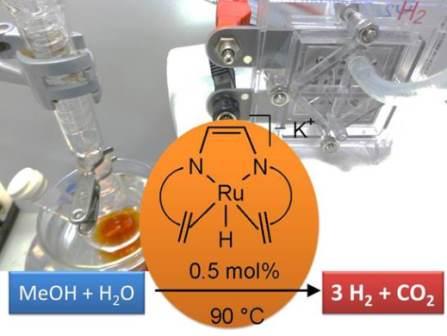Transition metal compounds and coordinated radicals for dehydrogenations

The development of efficient catalytic processes is critical for using biomass alcohols for the production of H2 as chemical energy carrier and fine chemicals under waste-free conditions. Our own research efforts focus on dehydrogenative coupling reactions (DHC) which is an atom economic and efficient way to obtain carbonic acids, ester, and amides from alcohols according to: R1-CH2-OH + R2-XH + 2 A -> R1-CO-XR2 + 2 “H2” (X = O, NH). Transition metal complexes with olefins as steering ligands and amido functions as cooperating ligands are remarkable efficient catalysts promoting the DHC of substrates from renewable feedstock with a high turnover frequency and high chemoselectivity. Our mechanistic understanding inspired the development of a catalyst which converts cleanly methanol/water mixtures into H2 and CO2 and led to new catalytic dehydrogenation reactions of main group element hydrides as precursors to materials.
